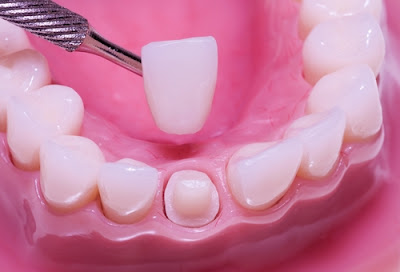Dental implants are simulated tooth roots applied to support a restoration for a missing tooth or teeth. This will eventually help to prevent jaw bone loss. Dentures and bridges fixed to implants will not slip or shift in your mouth and will give a great benefit for speaking and eating. Another great advantage of implants is that no adjoining teeth need to be prepared or ground down to support your new restored tooth or teeth in place. The implantation treatment is classified as a form of prosthetic dentistry, still, usually considered as a cosmetic dentistry.
People who have lost teeth might generally feel shy to smile or talk. Further, it creates biting issues and leads to other health issues like malnutrition.

Have proper consultation
If you are confused about having implants, grab suggestions from expert dentists. Your dental specialists will thoroughly check your teeth and gums and figure out bone density and quantity. This examination includes x-rays and CT scans to make sure that there is enough bone structure for fixing the implants. Besides, decide exactly where they should be implanted.
He or she will suggest you regarding how long the complete procedure will take, how many visits will be essential, and what you can consider after each session. Beyond this, the dentist will suggest you the most suitable treatment plan on the basis of the condition of your oral tissues, oral hygiene, and individual habits, dedication to follow posterior care instructions.
At the time of consultation, they will suggest options for local anesthesia and sedation dentistry. So, it will be easy at the time of treatment is discussed in prior.
Implant cost varies based on the treatment you choose and your dental situation. So, it is advisable to clear costs and other expenses during the consultation.
Procedure
After adolescence, one can grab this treatment if his or her bone growth is complete. However, if an individual has any particular health issue like diabetes, cancer, or periodontal disease, may need some prior treatment before the procedure can be implemented.
First of all, in this process, development of an individualized treatment plan. The plan focuses on your specific needs and is prepared by a team of professionals who are especially skilled and experienced in restorative surgery.
Next, the dentist will implant the tooth root. This is a small post formed by titanium and placed into the bone socket of the missing tooth.
Then, a small adapter called an abutment is placed in the post to firmly hold the new tooth. To design the new teeth or tooth, your dentist makes imprints of your teeth and creates the right model of your bite. Besides, a dentist will also match the color of the new teeth to your natural teeth as it must look like natural teeth.

So, the dental implants is an amazing procedure to grab new teeth and get rid of dental issues.
If you want to get dental implants treatment, consult the MDS dental specialists. Bringing together cutting-edge dental technology, specialized equipment and a complete experience-our team of specialists can accurately identify your needs and provide as per the right treatments with greater efficiency and success. Implant surgeries can usually be performed on site to accommodate all your needs in one place. For more information regarding our staff or clinic, visit our website, www.mdsdental.com.au






